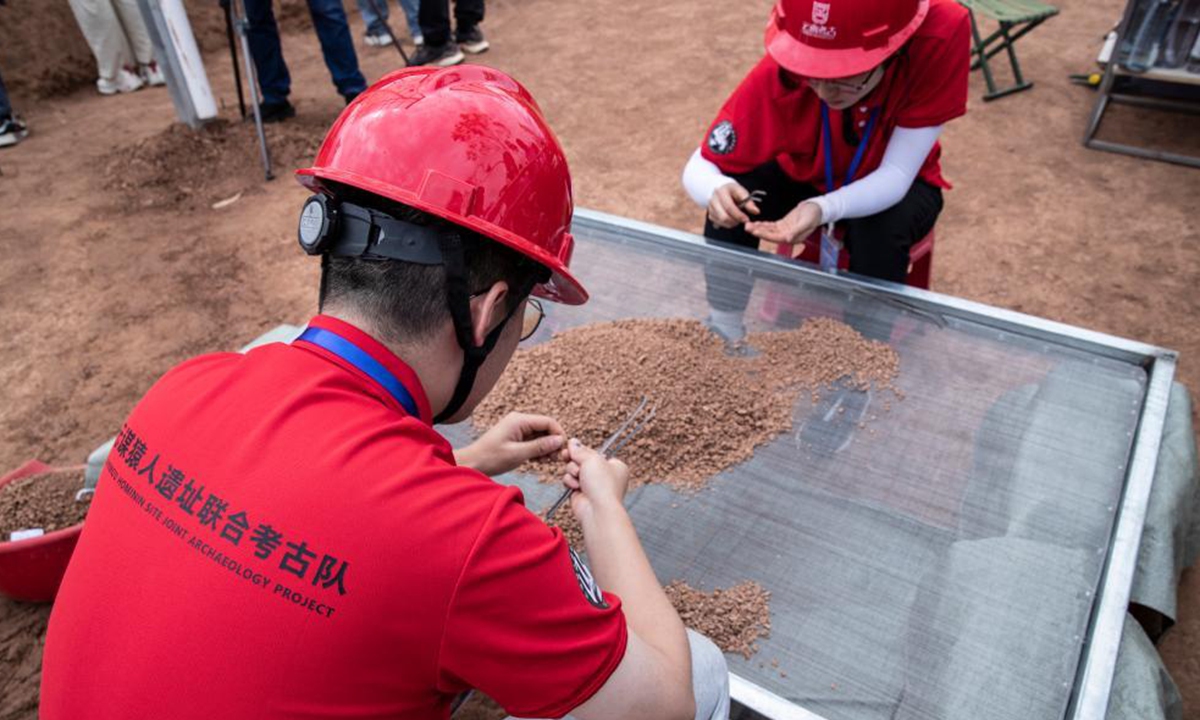ARTS / ART
Sixth excavation for Yuanmou Man at 1.7-million-yr old Chinese Homo erectus site begins

Photo: Xinhua
Archaeologists have commenced a sixth excavation at the discovery site of Yuanmou Man, the earliest human species found in Southwest China’s Yunnan Province, the Xinhua News Agency reported on Saturday.The Yuanmou Man site first gained public attention in 1965, when two ancient human teeth fossils were found, pushing the lineage of humans in China back to 1.7 million years ago.
Experts noted that the study of the Yuanmou Man site is of great significance in revealing the origins and development of ancient humans across East Asia.
“The Yuanmou Man belongs to Homo erectus in classification.,” Ruan Qijun, head of the excavation team, told the Global Times on Monday. “And the incisors of Yuanmou Man showed obvious shovel shape, which is a link in the evidence of continuous evolution.”
Ruan noted that the reason for the restart of archaeological excavation work at the Yuanmou Man site is that “our academic and social needs for further systematic research and revitalization of the site are increasingly strong.”
“The Yuanmou Man site proves that Yunnan, located along the upper reaches of the Yangtze River, was an important area of the origin and development of ancient human beings. It also provides strong evidence of the ‘diverse origins’ of ancient humans in addition to ancient humans in Africa,” Dong Hao, a Beijing-based archaeologist, told the Global Times on Sunday.
Covering 512,100 square meters, the site has produced over 600 stone relics and more than 600 animal fossils during previous excavations.
The decision to carry out the sixth excavation came after the Yunnan Institute of Cultural Relics and Archaeology, the Institute of Vertebrate Paleontology and Paleoanthropology and other related institutes worked together to survey the area from November 2022 to June 2023.
The joint research team also conducted a digital archaeological mapping with an area of 2.28 square kilometers this June, which includes both the site and its surroundings.
“This time our excavation will cover an area of 200 square meters. At the same time, other related fields including paleoanthropology, paleontology, chronology studies will also be included for the first time as our archaeological work continues,” said Ruan.
The Yuanmou Man site was listed as a protected national-level cultural relic site in 1982.
A total of three surveys and five excavations have been conducted at the site, during which a tibia (shin bone) fossil and the remains of carbon dust were discovered in addition to the stone relics and animal fossils mentioned above.
These fossils are now kept in Yunnan's Yuanmou Man Museum. Built in 2010, the museum has more than 4,000 fossils and specimens on display.
“The Yuanmou Man represents one of the earliest humans in China, which is of great value in understanding the dispersal pattern of the earliest humans in Eurasia. As a new round of archaeological excavation has started, we expect to discover more human fossil materials, obtain more archaeological information, and use other multidisciplinary research methods to understand the living environment background, so as to have a more thorough understanding of this earliest human being,” the archaeological team leader added.

